Faculty Offer Invaluable Advice for New Graduates
University of Arizona Health Sciences faculty offer encouragement and advice for new graduates beginning the next phase in their professional lives.
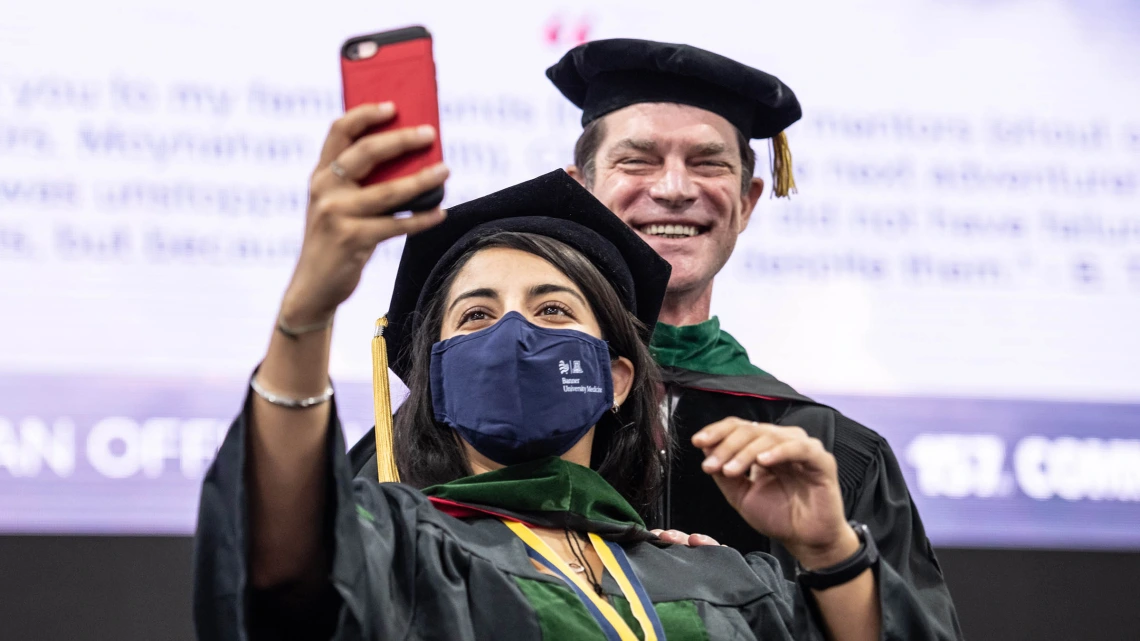
Graduation on the horizon forces students to think ahead and plan the next phase of their professional lives. University of Arizona Health Sciences faculty share some invaluable advice to new graduates.
Graduation can be a bittersweet time for students. It’s the culmination of years of effort and intense learning, of friendships made, and the finish line for that final research project – but students also realize most will go their separate ways into the future.
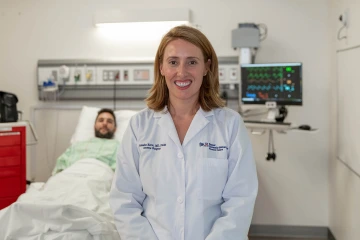
Natasha Keric, MD, FACS, associate professor of surgery at the College of Medicine – Phoenix.
Whether the path ahead is crystal clear or hazy and unknown, University of Arizona Health Sciences faculty have advice to share with new graduates across the colleges.
Keep learning
“Don't forget why you entered this profession,” said Natasha Keric, MD, FACS, associate professor of surgery at the University of Arizona College of Medicine – Phoenix. “Keep your passion and mission at the forefront of everything that you do, but especially when you are having times that make you question why you have chosen this distinguished path.”
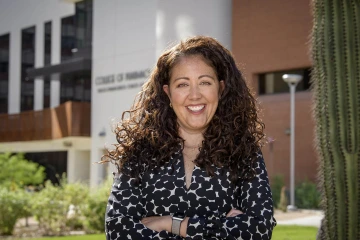
Elizabeth Hall-Lipsy, JD, MPH, assistant professor at the R. Ken Coit College of Pharmacy and director of the PharmD Forward program.
“It’s OK if you don’t have all the answers, or if your answers are, ‘I don’t know’,” said Elizabeth Hall-Lipsy, JD, MPH, assistant professor from the UArizona R. Ken Coit College of Pharmacy and director of the PharmD Forward program. “The key is to keep asking the questions and doing the work to answer them every day throughout your professional career.”
For all graduates, but new nurses in particular, UArizona College of Nursing associate clinical professor Connie Miller, DNP, RNC-OB, CNE, CCCE, gave this advice: “Continue to learn and ask questions. There is still so much to learn when you are starting out, so be patient and kind with yourself. Know that you are making a difference in your patients’ lives and that your presence alone can be healing to them. Commit to lifelong learning and set a goal to get certified in your specialty.”
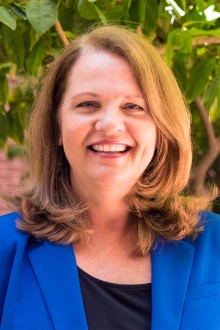
Connie Miller, DNP, RNC-OB, CNE, CCCE, associate clinical professor at the College of Nursing.
Felicia Goodrum, PhD, professor of immunobiology at the UArizona College of Medicine – Tucson, echoed Dr. Miller’s advice. “The most important thing I can offer is to recognize and appreciate that you are moving into unchartered territory, and you will be asked for many things you have not been specifically trained for. This is where it becomes very important to commit to lifelong learning, accept mistakes, learn and move on from them.”
Jorge Masuello, MD, clinical associate professor in the UArizona College of Medicine – Phoenix, advised, “Be observant, analyze situations from different points of view, always question if there are other ways to do things, or why you are doing what you are doing. Never stop learning, researching and teaching.”
Stay connected
Maintaining relationships after graduation and fostering new ones is a must. Dr. Keric, who also is a trauma, surgical critical care and acute care surgeon at Banner – University Medical Center Phoenix, added, “Stay in touch with your mentors and peers who have supported you along your journey. It not only is a great way to share your stories of success, but also to connect when you feel like you could use support. The positive community you surround yourself with only makes you stronger.”
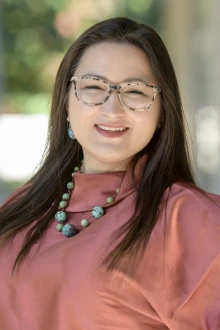
Amanda Wilson, PhD, assistant professor at the Mel and Enid Zuckerman College of Public Health.
“Regularly review your goals and the steps you’re taking to achieve them,” Dr. Wilson added. “Writing them down and having them on your computer monitor or near your desk can be a powerful reminder of why you are where you are, and what you hope to accomplish while you’re there.”
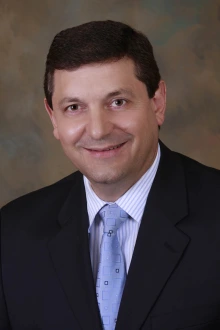
Jorge Masuello, MD, clinical associate professor at the College of Medicine – Phoenix.
“Connect to others to enrich your career experiences and value what you offer to them. You never know what fabulous opportunities and people will cross your path,” said Nancy Alvarez, PharmD, BCPS, College of Pharmacy associate dean of academic and professional affairs on the Phoenix campus, associate professor of pharmacy practice and science, and director of diversity, equity and inclusion.
Terri Warholak, PhD, RPh, assistant dean for academic affairs and assessment in the College of Pharmacy, shared a message of paying it forward. “So many people have helped you get to where you are. It’s your turn to mentor the generations that come after you,” said Dr. Warholak, who also is a professor of pharmacy practice and science, and track director for the health and pharmaceutical outcomes graduate program.
Practice self-care to avoid burnout
Dr. Alvarez also has advice for graduates on how to reduce the risk of burnout. “Spend time thinking about the following: What is important to you? What is interesting to you and brings you joy? What are you good at? What needs must you meet? Use this information to ground and support decisions in your life and to mitigate chronic stress which can lead to burnout. Caring well for yourselves will allow you to own the positive impact you can have on the lives of the citizens of your community no matter your area of study.”
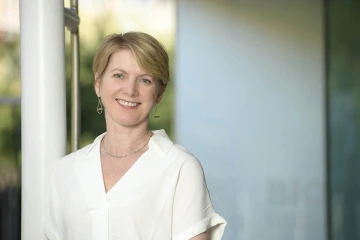
Felicia Goodrum, PhD, professor of immunobiology at the College of Medicine – Tucson.
Dr. Goodrum, who also is a member of the BIO5 Institute and the UArizona Cancer Center, had words of wisdom for those who may experience the dreaded imposter syndrome at some point in their career. “While we are all struck with imposter syndrome, at least occasionally, it helps when you realize no one can know all things, and we all have important and unique things to contribute. Embrace the “collective brain” because it will always take you further than any single-minded pursuit. Stay humble, as humility will keep you honest. It will be amazing 10 to 15 years from now to see the many things you never expected that actually built your success.”
Dr. Hall-Lipsy encourages graduates to keep an open mind about what their future will look like, even years into their career. “Becoming a professional across your career is a marathon that may take many twists and turns. What you start out doing may not ultimately be what you keep doing. Enjoy the phases of your career, and don’t be afraid to take risks, try new things and challenge yourself.”

